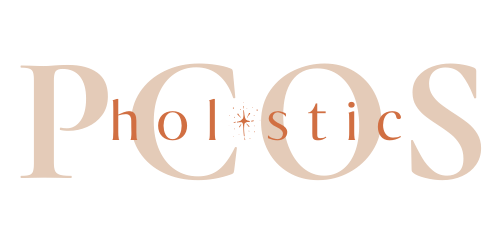The PCOS Tests You Should Ask Your Doctor For (But Aren’t)
How We Diagnose PCOS
If you think you might have Polycystic Ovarian Syndrome, there are a number of tests your doctor can run to confirm it.
First - it’s important to know that PCOS is a “diagnosis of exclusion” meaning that, because so many of our symptoms can overlap with other issues like hypothyroidism or hypothalamic amenorrhea (HA), your doctor needs to rule out any other conditions before diagnosing you with PCOS.
Then, your doctor will likely use the Rotterdam Criteria to determine if you have PCOS.
That means you have to have at least 2 out of the following 3:
High androgen hormones on a blood test (or symptoms of high androgens)
Polycystic ovaries, as confirmed by ultrasound
Irregular cycles
But once you’re diagnosed, you can ask for additional tests that will tell you a whole lot more.
The following tests will help you and your doctor determine your PCOS Type, any additional health issues PCOS might be causing (like Vitamin D deficiency or high cholesterol), and what exactly is driving your symptoms.
This will help you target symptom relief fast.
Testing To Ask About
Sex Hormones
Follicle Stimulating Hormone (FSH) - FSH helps us evaluate ovarian function and pituitary function and is usually low in PCOS
Luteinizing Hormone (LH) - Used to evaluate pituitary function, evaluate fertility issues, and detect ovulation. Typically elevated in PCOS.
Estrogens and their metabolites
Sex Hormone Binding Globulin (SBGH) - helps evaluate signs and symptoms of high androgens. May be low with PCOS.
Anti-Mullerian Hormone - evaluates ovarian function and fertility. Often increased in PCOS.
Day 21* Progesterone (*Day 21 testing assumes all women follow a 28-day cycle--but we don't. In fact, only 10% of women ovulate on Day 14. If you DO cycle regularly, count ten days before your anticipated period. If you don't cycle regularly, ask your doctor to help you identify when you're ovulating and test 7 days from that).
Thyroid - TSH and T4. Also check for an enlarged thyroid gland.
Androgens: total and free testosterone, dihydrotestosterone (DHT), DHEA, DHEA-S, androstenedione
Understanding which type of androgen (adrenal or ovarian) is dominant can help you understand the most effective ways to bring them down into a healthier range. For example, androstenedione can help us evaluate the function of the adrenal gland, and is recommended for testing with hirsutism, acne, and amennorhea (absence of a period).
Other Tests
HBA1C and Fasting Insulin
Glucose Tolerance Test
Cholesterol (high cholesterol is a risk factor for PCOS) as fasting lipids
Vitamin D (often deficient in PCOSers, yet incredibly important for hormonal balance)
Mineral analysis — a healthy mineral balance is vital to hormonal health. Your doctor may be able to help you uncover any deficiencies you may have (especially for zinc — a building-block of progesterone, which we’re often deficient in).
Cortisol and cortisone (helps identify long term stress and its hormonal impacts)
Ultrasound to check for cysts on the ovaries and general ovarian health.
What else should you ask your doctor?
These tests will give you tons of information that you + your doctor can use to make informed decisions about your care plan. But it doesn’t stop there.
Choosing the right care plan for you can be complicated and overwhelming, especially when we’re often simply given a prescription and sent out the door.
Download the free guide below for a complete list of questions to ask your doctor (and how to find the right doctor for your PCOS) so you can walk into your next appointment feeling confident and in control.

